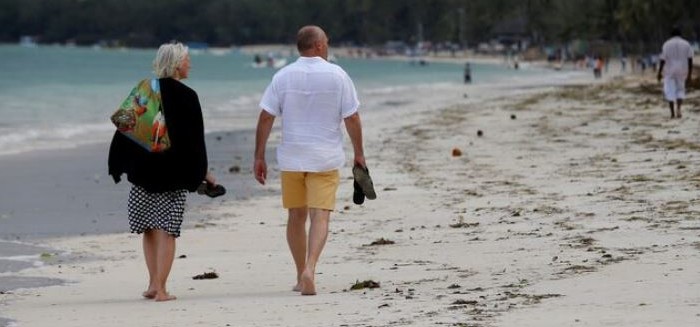The Ministry of Tourism and Wildlife (MOTW) issued a forceful public denial today, rejecting as baseless and misleading widespread reports that the government plans to privatise Kenya’s public beaches.
In an official statement, the ministry described the claims as “completely unfounded” and warned that those spreading the narrative risked stoking unnecessary public alarm.Government Response:
Strong and Swift.
Speaking at a media briefing in Nairobi, the Principal Secretary for Tourism, John Ololtuaa, affirmed that while the ministry is actively updating the national strategy for beach and island development, no decision has been made to transfer public ownership of coastal shoreline assets to private entities.
“Let me be clear: Kenya’s beaches remain public property, accessible to every Kenyan — no sale and no secret deal,” the PS stated.The denial follows a wave of speculation triggered by a leaked working draft of the National Tourism Strategy 2025‑2030, which reportedly proposed classifications of beaches and islands according to development level, including public-private partnerships and long-term leases.
These proposals were misconstrued online and in some platforms as full-scale privatization.
What Triggered the Rumours.
The controversy stems from the draft strategy’s language: it suggested introducing categories such as “premium beaches,” “eco-tourism beaches,” and “adventure beaches,” with corresponding investment incentives.
Reports emerged that specific beaches may be “leased” or placed “under private management” to stimulate luxury resort development. As public reaction grew, with voices warning that access to beaches could become restricted, the ministry moved to reassure Kenyans that “the draft is merely a discussion document” and emphasised that public consultation remains integral before any policy is finalised.
Why This Matters.
Kenya’s coastline has long been viewed as a shared national asset. The perception of a move towards privatisation touches on deep-rooted concerns about accessibility, local livelihoods and the rights of coastal communities.
If the public truly believed beaches were being handed over to private interests, it could spark widespread unrest among residents, tour operators, and hospitality workers who depend on open shorelines and low-cost access.
In addition, the tourism sector, already facing global uncertainties and domestic pressures, would be confronted with reputational risk: international travellers and investors alike might balk at a destination perceived to be restricting public access or altering ownership of natural attractions.













Leave a Reply